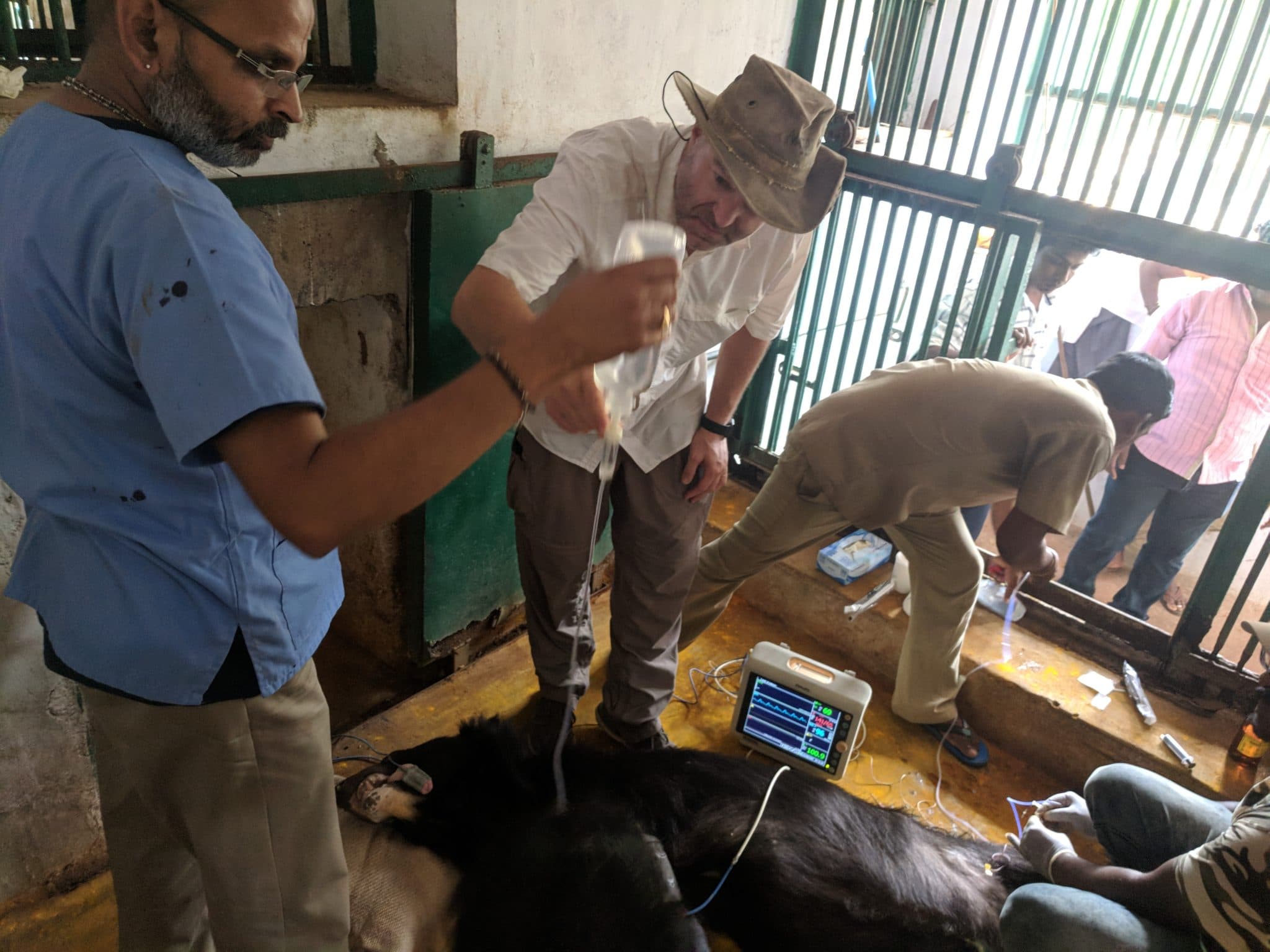Once the paperwork is finalized, UGA CVM students will have the opportunity to travel with professors to India to work at one of the largest zoos in the world.
Dr. Puliyur MohanKumar, a professor in the Department of Veterinary Biosciences and Diagnosis Imaging, along with his wife Sheba MohanKumar, an associate professor in the same department, traveled with students to India to provide tropical medicine training during the two decades they worked at Michigan State University. Now at UGA, Dean Lisa Nolan has asked them to create a program for students to learn how to practice veterinary medicine in areas with limited resources
“Students should have the opportunity to really see some diseases they may not have seen and learn how countries deal with it,” he said.
To begin developing the partnership, MohanKumar and Dr. Joerg Mayer, associate professor of zoological and exotic animal medicine, traveled to India in July 2018 to visit several possible internship sites. First, they visited one of the largest wildlife sanctuaries in the world, which features one of the largest free-living elephant camps in the world, where calves are raised by local tribal communities. Embedded with the elephant groups, these families train, bathe and feed the elephants daily, beginning with morning baths and ending with evening baths like clockwork. Like domestic dogs, the baby elephants often sleep on the trainer’s porch.
“I’ve never seen anything like that as a human-animal bond, and it’s special to see it in action,” Mayer said. “When an elephant moves to another sanctuary, the trainer moves their whole family with it. A bond can’t get much closer than that.”
Next, the group traveled to Arignar Anna Zoological Park, also known as Vandalur Zoo, which is one of the largest zoos across the globe. Founded in 1855 as the first public zoo in India, it’s now considered one of the most modern and scientifically managed zoos, encompassing nearly 1,500 acres in Chennai, India, with more than 2,000 animals among 200 species. It draws nearly 2 million visitors per year.
While there, Mayer was able to help a sick bear that wasn’t eating and looked emaciated. Three young veterinarians worked with Mayer to anesthetize the bear and take stomach biopsies. He was able to teach them several protocols used in the U.S., which they eagerly embraced and implemented. The bear improved, and the veterinarians were thrilled.
“It became clear that these keepers live for their jobs,” he said. “I’ve never seen people more dedicated than these keepers, which is really phenomenal.”
Once a memorandum of understanding is approved between UGA and the Arignar Anna Zoological Park, UGA will become the first veterinary college in the U.S. with a formal relationship to the Chennai zoo. This could open up various opportunities for students, especially those interested in specific species, diseases or even forestry.
“For instance, the zoo has 25 tigers, so if a student were interested in really learning how to maintain tigers and their common disease, this would be the place to get trained,” MohanKumar said.
Due to the location of the zoo, internships could also provide valuable experience with human-animal conflicts, especially the zones where sanctuaries are located but human development has progressed. Elephants sometimes raid crops, for instance, and domestic animals sometimes interact with wildlife in the forest, which can spread disease both ways. Since these interactions don’t often occur in the U.S, students could gain hands-on learning around disease transmission, prevention and outbreak responses.
“We need to train the next generation of students and colleagues who need experience with zoological medicine,” said Mayer, who has worked with zoological teams in Papua New Guinea, South Africa, and England as well as Zoo Atlanta and the Georgia Aquarium.
Although domestic and exotic animals exhibit different vital signs, he said, students should be able to see the holistic picture by measuring animal health and putting together puzzle pieces to solve an illness. Just as zoo keepers tap into their ongoing relationship with their animals, students can improve their communication skills with owners and observation skills with vital signs.
“Sometimes we easily rush to diagnostic machines and don’t spend as much time listening to people, looking at the animal and developing our senses,” he said. “No class in the curriculum can give us the experience of using our eyes, nose, ears and hands to understand what’s happening.”
CVM students gain some of this experience locally when they travel to Bear Hollow Zoo in Athens with Mayer to perform routine annual check-ups of the animals. Occasionally, they’re called to help with a sick animal, too.
“To become a good veterinarian, we need to think with our brains, use our senses and connect the dots,” he said. “Just because you’re working with a bobcat or alligator doesn’t mean your training goes out the window.”
During their rotations, for instance, students often provide preventive medicine for the bears. Since bears tend to be prone to liver cancer, Mayer teaches students how to watch certain lab values and keep an eye on the bears’ habits such as eating and sleeping before an illness develops. If anything looks suspicious, they may do an ultrasound or take a biopsy.
“Some veterinary students might not be as fortunate because they don’t get to see a bear or bobcat mobilization before residency,” said Kelly Garrison, the Bear Hollow zoo coordinator.
As part of the partnership, Garrison and Mayer keep in touch regularly to monitor any illnesses that may pop up. When a male white-tailed deer named Rocky had abnormal antler growth, for instance, Mayer immediately responded and helped her develop a plan. They also created a new diet for the bears, some which were overweight, which has helped their health tremendously.
“He genuinely cares for the animals, and it gives us peace of mind to be able to send a text when we’re concerned,” Garrison said. “He’s also good about letting students take the lead, which is great for them to continue to learn and grow.”
